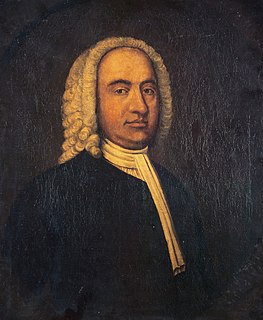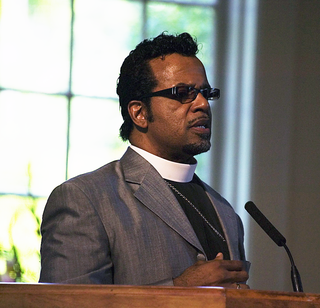A Quote by John Calvin
The subject then of these chapters may be stated thus, - man's only righteousness is through the mercy of God in Christ, which being offered by the Gospel is apprehended by faith.
Related Quotes
I think, that a man never passes the verge of moral humility, till self-righteousness be dethroned, till the high and towering imaginations of the man's own righteousness by the law be levelled by the mighty weapons of the gospel, and he brought to submit to the righteousness of God for justification, which is, in the gospel revealed 'from faith to faith.'
Yet, after all, faith is not our righteousness. It is accounted to us in order to righteousness (Rom 4:5, GREEK), but not as righteousness; for in that case it would be a work like any other doing of man, and as such would be incompatible with the righteousness of the Son of God; the righteousness which is by faith. Faith connects us with the righteousness, and is therefore totally distinct from it. To confound the one with the other is to subvert the whole gospel of the grace of God. Our act of faith must ever be a separate thing from that which we believe.
Night and day I pondered until I saw the connection between the justice of God and the statement that 'the just shall live by his faith.' Then I grasped that the justice of God is that righteousness by which through grace and sheer mercy God justifies us through faith. Thereupon I felt myself to be reborn and to have gone through open doors into paradise.
God in his infinite mercy has devised a way by which justice can be satisfied, and yet mercy can be triumphant. Jesus Christ, the only begotten of the Father, took upon himself the form of man, and offered unto Divine Justice that which was accepted as an equivalent for the punishment due to all his people.
The death of Christ made it possible for God to accept sinful man, and that he has, in fact, done so. Consequently, whatever separation there is between man and the benefits of God's grace is subjective in nature and exists only in man's mind and unregenerate spirit. The message man needs to hear then, is not that he simply has a suggested opportunity for salvation, but that through Christ he has, in fact, already been redeemed to God and that he may enjoy the blessing that are already his through Christ
We declare to the world that the fulness of the gospel of Jesus Christ has been restored to the earth. . . . We invite all to listen to the message of the restored gospel of Jesus Christ from us. Then you can compare the glorious message with what you may hear from others, and you can determine which is from God and which is from man.
Indeed all the saints are taught the same lesson - to renounce their own strength, and rely on the power of God; their own policy, and cast themselves on the wisdom of God; their own righteousness, and expect all from the pure mercy of God in Christ, which act of faith is so pleasing to God, that such a soul shall never be ashamed.
Thus in this oneness Jesus Christ is the Mediator, the Reconciler, between God and man. Thus He comes forward to MAN on behalf of GOD calling for and awakening faith, love and hope, and to GOD on behalf of MAN, representing man, making satisfaction and interceding. Thus He attests and guarantees to God's free GRACE and at the same time attests and guarantees to God man's free GRATITUDE.
We have the Annunciation, the Conception, the Birth and the Adoration, as described in the first and second chapters of Luke's gospel; and as we have historical assurance that the chapters in Matthew's gospel which contain the miraculous birth are an after addition not in the earliest manuscripts, it seems probable that these two poetical chapters in Luke may also be unhistorical, and borrowed from the Egyptian accounts of the miraculous births of their kings.
Trust wholly in Christ; rely altogether on His sufferings; beware of seeking to be justified in any other way than by His righteousness. Faith in our Lord Jesus Christ is sufficient for salvation. There must be atonement made for sin according to the righteousness of God. The person to make this atonement must be God and man.


































